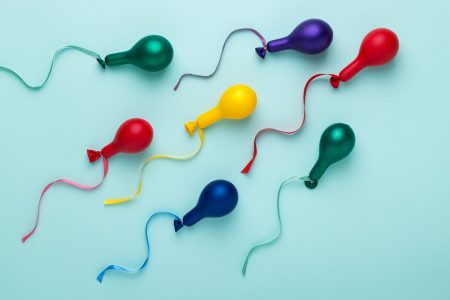
Frequently Asked Questions about Acupuncture and Infertility
Individual testimonies have shown that acupuncture may be effective in dealing with issues of fertility, but these findings are not scientifically proven. Acupuncture, therefore, is still seen as alternative therapy.
What is infertility?
The term Infertility is used to describe the inability of falling pregnant. There could be underlying causes for this, but many do not show or experience any other symptoms at all. There are various tests that can be used to assess this, and these may indicate inadequate levels of certain hormones in men and women, and ovulation difficulties in women.
What is AMH?
Anti-Mullerian Hormone is a substance produced by the ovarian follicles. A laboratory test may be used to assess a woman’s egg count.
How do AMH levels affect fertility?
There is no link at all. While the test is effective in assessing egg count, it cannot determine the quality of eggs produced.
Why are my AHM levels low?
There could be a number of reasons for this, including the following:
- Your age
- Your DNA
- Early menopause
- Endometriosis or ovarian cyst surgeries
- Autoimmune conditions
Remember that as you age, your AMH levels decline.
What is acupuncture?
Acupuncture is an alternative therapy that is instrumental in Traditional Chinese Medicine. Thin needles are inserted into skin to stimulate blood flow and restore balance.
How effective is acupuncture?
Acupuncture is safe when performed correctly and has very few side effects. National Institutes of Health have confirmed its efficacy in a number of conditions, there is some studies that show how acupuncture may help in treating fertility. Small study by (Gerhard 1992, Stener-Victorin 2000, 2008, 2010).
This research has explained how acupuncture may help fertility:
By regulating fertility hormones – stress and other factors can disrupt the function of the hypothalamic pituitary-ovarian axis (HPOA), causing hormonal imbalances that can negatively impact fertility. Acupuncture has been shown to affect hormone levels by promoting the release of beta-endorphin in the brain, which affects the release of gonadotrophin releasing hormone by the hypothalamus, follicle stimulating hormone from the pituitary gland, and oestrogen and progesterone levels from the ovary (Ng 2008, Huang 2008, Lim 2010, Stener-Victorin 2010). Further details of these processes are emerging, for example mRNA expression of hormones, growth factors and other neuropeptides (He 2009)
By increasing blood flow to the reproductive organs – stress also stimulates the sympathetic nervous system, which causes constriction of ovarian arteries. Acupuncture inhibits this sympathetic activity, improving blood flow to the ovaries (Stener-Victorin 2006, Lim 2010), enhancing the environment in which ovarian follicles develop. It also increases blood flow to the uterus (Stener-Victorin 1996, Huang 2008), improving the thickness of the endometrial lining and increasing the chances of embryo implantation.
By counteracting the effects of polycystic ovarian syndrome (PCOS) – PCOS is one of the most common causes of female infertility. By reducing sympathetic nerve activity and balancing hormone levels, acupuncture has been shown to reduce the number of ovarian cysts, stimulate ovulation, enhance blastocyst implantation and regulate the menstrual cycle in women with PCOS (Stener-Victorin 2000, 2008, 2009, Zhang 2009). It may also help to control secondary effects such as obesity and anorexia (Lim 2010).
How is acupuncture linked to fertility?
Traditional Chinese Medicine links low AMH levels to low kidney yin energy. It asserts that good kidney yin energy is necessary for the production of fertile eggs. Acupuncture is therefore used to restore balance and thereby promote good kidney yin energy.
There is no conclusive evidence to prove that acupuncture is either effective or ineffective in treating fertility issues. A 2018 study showed that live births were recorded in 18.3% of respondents that were treated with acupuncture, compared to 17,8% in the other control group. The results were recorded as negligible. There are, however, a number of fertility acupuncturists that have effectively treated a wide range of fertility issues. See here for testimonials.
How many acupuncture treatments would I need for fertility issues?
Each case is treated individually, but research suggests that there is a significant increase in live births for those who have had between 9 and 12 sessions of acupuncture. The risk of miscarriage in a normal pregnancy is estimated to be as high as 25%, and acupuncturists also recommend weekly treatments during the first trimester to reduce this risk.
If you would like more information about how acupuncture could help you please contact me.







